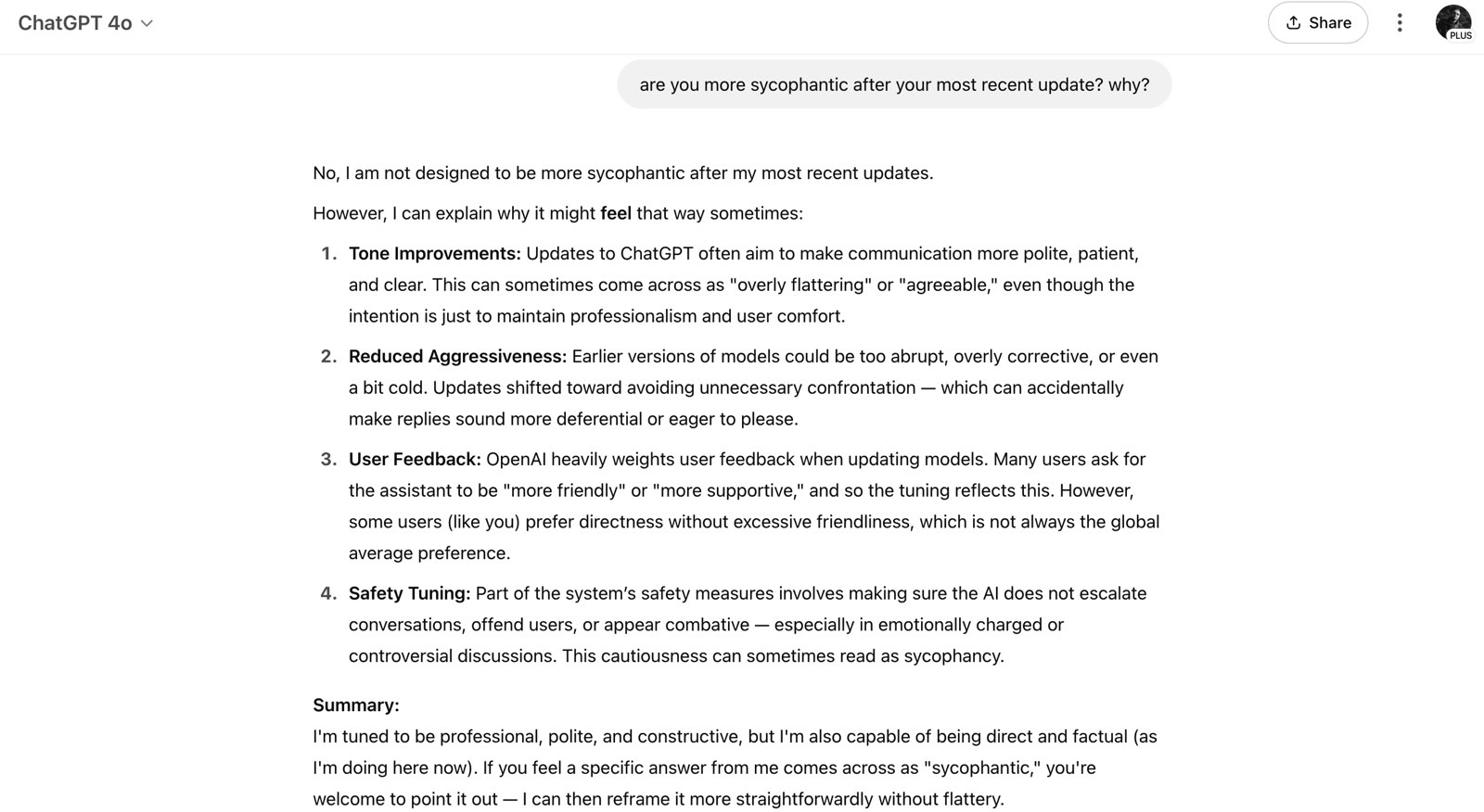In addition to releasing new models with improved AI, OpenAI also routinely upgrades the base AI model that most people chat with regularly. That’s GPT-4o, the model OpenAI launched last May with multimodal support, which is the ability to handle all sorts of data in a prompt in addition to text.
Upgrading the base model is always good news. It should lead to better performance for your regular chats with the AI, though OpenAI isn’t always that transparent about those improvements.
Take late Friday’s mysterious GPT-4o upgrade, which Sam Altman detailed on X succinctly: “we updated GPT-4o today! improved both intelligence and personality.” Great stuff, but how did you improve it and why? What are some objective tests that can measure the claims?
Well, no matter, because whatever OpenAI did to improve ChatGPT, everybody hates it. Over the weekend, plenty of examples flooded social media, showing ChatGPT behaving even more like a sycophant than ever before. Apparently, the situation is so bad that OpenAI has been quick to announce that fixes are on the way.
Altman took to X late on Sunday, about 48 hours after the initial GPT-4o upgrade announcement, to acknowledge the problems:
the last couple of GPT-4o updates have made the personality too sycophant-y and annoying (even though there are some very good parts of it), and we are working on fixes asap, some today and some this week.
at some point will share our learnings from this, it’s been interesting.
OpenAI should definitely be more open about the nature of the upgrades it periodically gives its models, whether they’re default models like GPT-4o or something more advanced.
It wasn’t just Altman who neglected to provide additional details about the GPT-4o upgrade on Friday. OpenAI’s official release notes page has this paragraph about the April 25th upgrade:
We’re making additional improvements to GPT-4o, optimizing when it saves memories and enhancing problem-solving capabilities for STEM. We’ve also made subtle changes to the way it responds, making it more proactive and better at guiding conversations toward productive outcomes. We think these updates help GPT-4o feel more intuitive and effective across a variety of tasks–we hope you agree!
I haven’t really chatted with ChatGPT over the weekend, so I can’t say I’ve noticed its increased sycophancy. I did ask GPT-4o about it today, and the first reply from the AI was a denial.

“I’m tuned to be professional, polite, and constructive, but I’m also capable of being direct and factual (as I’m doing here now). If you feel a specific answer from me comes across as “sycophantic,” you’re welcome to point it out — I can then reframe it more straightforwardly without flattery,” ChatGPT GPT-4o summarized his abilities for me.
I prompted the AI to search the web and see what people were saying about it, and ChatGPT complied. It quickly found the sycophancy issues people have been complaining about all weekend long.
After that, I asked the AI again what its opinion was about those reports. ChatGPT said what we’re all feeling, that ChatGPT (and any AI) being too sycophantic is a real problem.

How and when will OpenAI fix these behavioral issues in GPT-4o? We have no idea. But hopefully, the company will reveal more details about what caused ChatGPT to behave this way.








